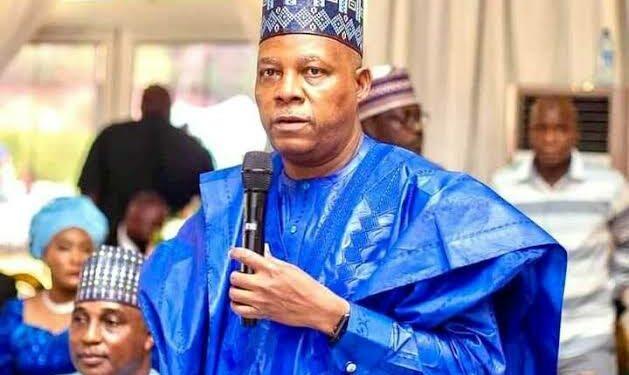The Federal Government has announced plans to phase out diesel-powered generators across critical infrastructure in Nigeria, shifting towards integrated hybrid energy solutions to align with global climate goals and promote sustainable development.
Vice President Kashim Shettima made the disclosure at the Decarbonising Infrastructure in Nigeria (DIN) Summit held in Abuja, where he emphasised the urgent need to transition to cleaner, more resilient energy systems.
“Climate action is no longer a luxury but a critical economic imperative,” Shettima declared. “Nigeria cannot afford to build yesterday’s infrastructure for tomorrow. If we don’t act decisively, we risk being sidelined in a rapidly evolving global economy.”
A key highlight of the summit was the government’s plan to transform the Onne Port in Rivers State into the country’s first fully green port. Discussions are underway with private sector investors to commit $60 million towards electrifying the port using a hybrid energy model that eliminates diesel dependence.
“This initiative marks a strategic shift,” the Vice President said. “With hybrid energy, we can cut emissions, reduce operational costs, and ensure uninterrupted, clean power for terminal operators and port users.”
According to Shettima, 75 percent of Nigeria’s greenhouse gas emissions stem from infrastructure-related sectors — including energy, transportation, agriculture, and urban development. These sectors, he said, must be decarbonised if Nigeria hopes to meet its net-zero target by 2060.

He projected that effective implementation of Nigeria’s Energy Transition Plan and Climate Change Act could create over 1.5 million green jobs by 2035, expand climate-smart agriculture, and unlock new export markets for clean energy.
“This summit is not about wishful thinking,” Shettima noted. “It is about action. It’s about building a future where infrastructure doesn’t harm but heals — a Nigeria free of polluting generators and fragile power grids.”
The Vice President also announced the forthcoming launch of a Green Investment Portal, designed to connect investors with viable, climate-smart infrastructure projects. He called for urgent regulatory reforms and cross-sectoral policy alignment to accelerate green financing and innovation.
Director-General of the National Council on Climate Change, Dr. Nkiruka Maduekwe, stressed Nigeria’s disproportionate exposure to climate risks, despite its low contribution to global emissions. She identified renewable energy adoption, smart agriculture, and land-use reforms as key strategies for resilience and carbon sequestration.
Echoing these priorities, Musaddiq Mustapha Adamu, Personal Assistant to the President on Sub-national Infrastructure, affirmed the federal government’s commitment to empowering states and communities in climate adaptation and green growth.
“Today’s conversation is not just about emissions. It’s about inclusion, economic survival, and restoring hope through sustainable infrastructure,” Adamu said.
The DIN Summit brought together policymakers, private sector players, and international development partners to chart Nigeria’s path toward a climate-resilient and economically inclusive future.



